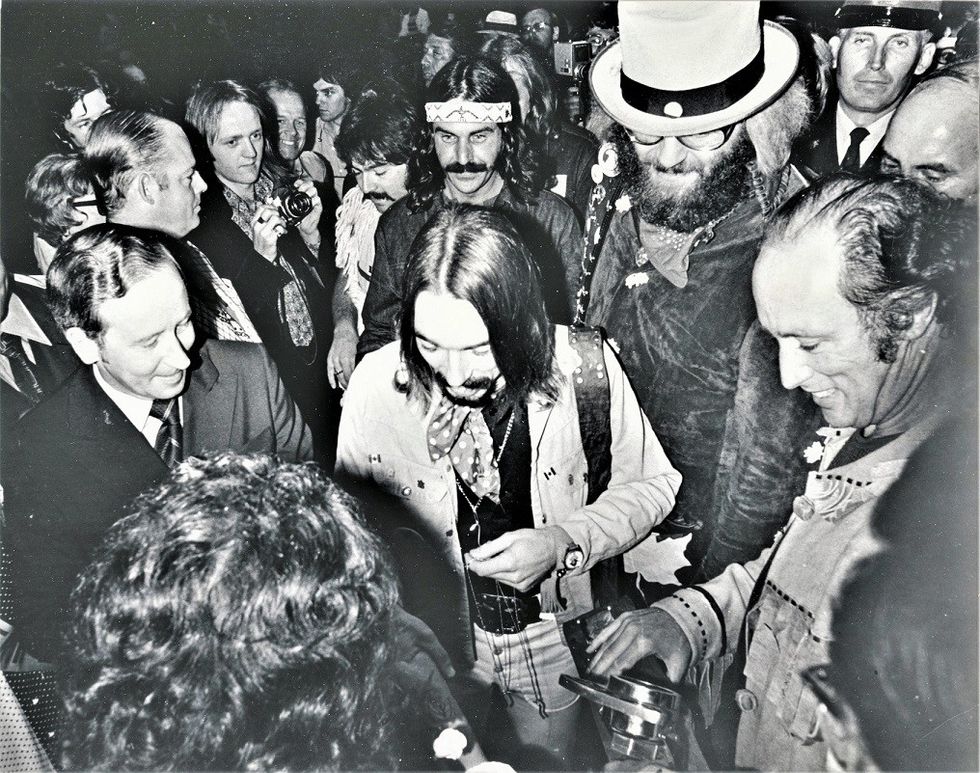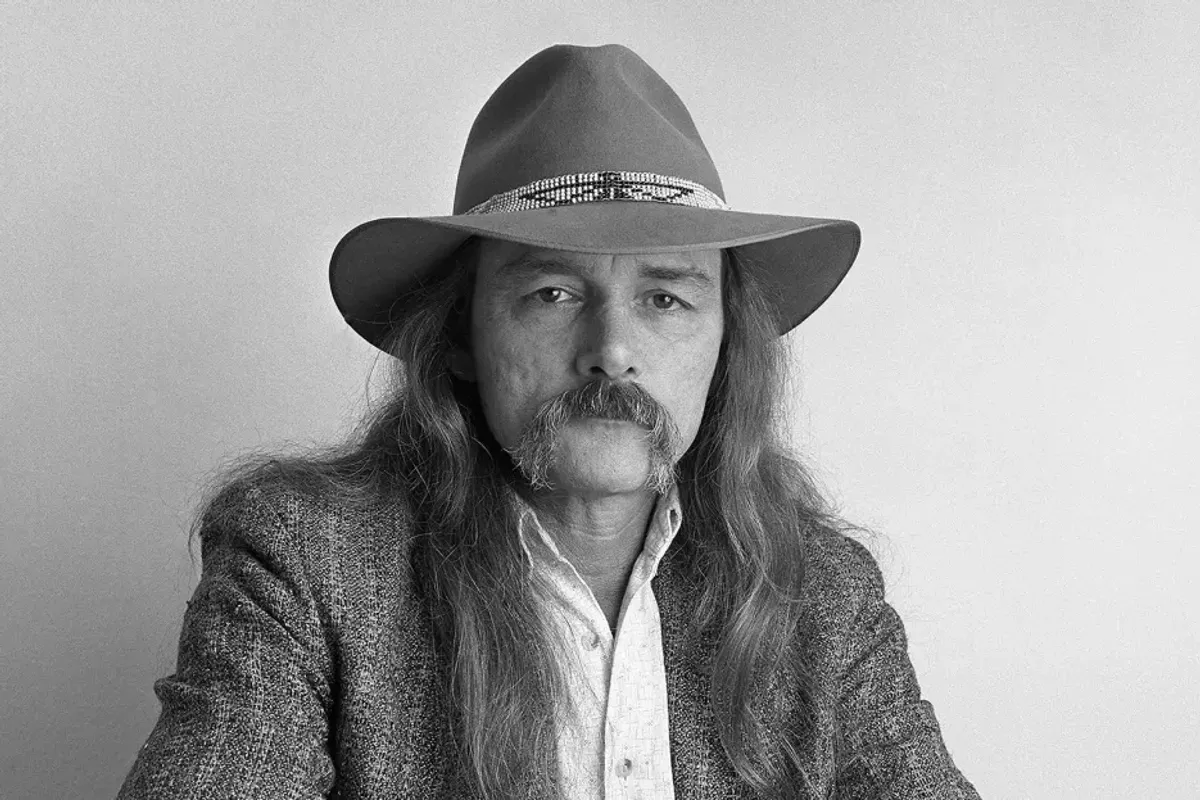Frank Davies: One More For Nevin Grant, 'A True Gentleman'
The following is republished as sent by Davies following the recent passing of broadcaster Nevin G

By Frank Davies
The following is republished as sent by Davies following the recent passing of broadcaster Nevin Grant.
Pictured: Crowbar presents PM Pierre Trudeau with vintage CKOC microphone at Perth County Festival, 1971. The CKOC microphone was a gift from Nevin Grant to Crowbar's Kelly Jay. Kelly/Crowbar, in turn, gave it to the Prime Minister as a thank-you, on behalf of all Canadian artists, for Canadian Content, with Kelly naming CKOC and Nevin Grant for the supportive role they played in it. All of Crowbar's members are in this picture and you'll also see a youthful-looking Ritchie Yorke in the background too!
Nevin Grant was a real gentleman and a professional in every sense.
From very early on - 1970 onwards from my own experience - he became a friend to Canadian artists, producers and their record labels. He listened to their music with his ears, heart and gut first, and then when chosen, supported it without qualification. That support came despite the music not being listed or recommended by the U.S radio tip sheets.
A handful of Music Directors across the country shared a similar outlook and modus operandi. Nevin often led the way with his early commitments to the Canadian records he believed in. This was all at a time when domestically signed and produced Canadian artists had a very hard time convincing domestic radio, particularly major market stations, to play their music.
In 1970 Pierre Juneau (Chairman of the CRTC), after a long build-up to it and extensive lobbying by all the 'shareholders' involved, announced the imminent introduction of Canadian Content regulations. These, of course, required Canadian radio stations to devote a certain amount of their airtime to qualifying 'Canadian' recordings. The regulations were introduced formally on February 18th, 1971. On that same day, my label (Daffodil) issued the Crowbar single "Oh What A Feeling".
Like Nevin and CKOC, Crowbar was Hamilton-based. Nevin had already added the record along with two other tracks CKOC were playing from the band's debut album as if they were singles. More importantly, he soon had Oh What A Feeling in high rotation (daytime included), another rare occurrence by most major stations throughout the seventies for domestically produced Canadian acts, even with the CanCon regulations in place. Nevin didn't add their songs 'because' of the impending regulations or the band being Hamilton boys, but because he felt they deserved to be heard. Like so many other Canadian records he 'broke' over the years.
In fact, the week before CanCon's introduction, Nevin already had 22 Canadian records on CKOC's 50 record playlist. 13 of those 22 were records that had not been released in the U.S and 6 of those were already charted on the station.
Nevin, fittingly, was re-elected as Chairman of the Maple Leaf System in 1971 after the new regulations came into effect. The MLS was a group of prominent broadcasters across the country whose music directors rated each week's qualifying CanCon single releases. The two singles with the highest average rating were guaranteed a minimum of two weeks airplay on all the MLS stations.
Nevin became a vital link, together with other similar-minded major and secondary market station MDs across the country, in a chain that became a veritable 'lifeline' for the entire spectrum of the Canadian music industry at that time. Radio was the king of all media back then and without airplay, the likelihood of breaking an artist was next to nil. Without radio play, the clubs wouldn't book the acts in live venues unless they were cover bands. Radio airplay was the sole driver of record sales and song performance income. Nevin and this select group of MDs provided that crucial initial support and exposure for Canadian music to Canadians - throughout the seventies particularly. The ground-swell of support created by them was unstoppable by the 80s and 90s as the majority of radio decision-makers from coast-to-coast joined their party and embraced all things Canadian with fervour.
Radio exposure and the self-confidence it fostered helped build the Canadian music industry infrastructure and its creative community to where they stand today. Canadian music and its artists are now accepted, loved and lauded by all media in Canada and around the world. Oh what a feeling indeed!
It all began with a ripple and with those few 'gatekeepers' like Nevin who went against the grain and threw out that first lifeline to Canadian music fifty years ago, with their 'damn the torpedoes' bravado on our behalf.
I spent a lovely afternoon with Nevin in late 2012. We came together to watch Crowbar accept a Lifetime Achievement Award from the Hamilton Music Awards. We got the chance to recall so many records and experiences we shared over all those decades. While Nevin added so many records I was involved with over all those years leading up to his retirement, he also chose not to add many others. I could never argue with his position that he needed to believe in it to add it and the record needed to fit CKOC's sound. Ever the pro! I had hoped to accept his invitation to go to Bowmanville to see his collection of memorabilia but sadly I never got to do it. I did go right out and order his book "Growing Up With The Hits" however.
Thank you, Nevin, for playing the 'hits' wherever they came from and allowing us to grow up with you at the same time!
Frank Davies
Label Owner, Record Producer & Music Publisher

















